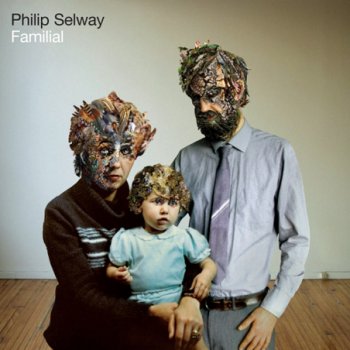If ten years ago you were to bet on which members of Radiohead might make a solo album, Phil Selway would surely be the last member you’d pick. It came as no surprise that Thom Yorke and Jonny Greenwood made the jaunt before Selway, as the latter’s quiet and contented personality seems ill-fitted for the attention that comes with stepping outside of one of the world’s biggest bands. Selway has always come across as the man who’d rather be the eye of the storm; intangible to the masses. That’s what makes Familial all the more fascinating. Not only is Selway’s personality put on display for the first time on a wide scale, but the album could very well prove to be the only window we’ll ever have into Phil’s thoughts.
Selway’s choice to step away from the drum kit for the entire album is a curious one as he’s one of the most accomplished and respected drummers of his generation. However, given the album’s mostly acoustic singer/songwriter nature, drums are of lesser importance. Where there is percussion it is provided by Wilco’s Glenn Kotche who adds texture but goes mostly unnoticed. This allows for Selway to pluck away at his guitar and focus on singing. Throughout the album Selway’s voice proves to be remarkably sweet and emotive. While not as elastic or sweeping as that of Yorke, Selway’s delicate, understated delivery is perfectly matched with these songs.
On Familial, Selway paints himself as a man at odds with his station in life. On “By Some Miracle” he chides himself for sidestepping an unnamed responsibility (“as I gave in to temptation / I’ve strayed across the line / keep it under wraps in the cold store / put it to the back of your mind”). Elsewhere on “The Ties That Bind Us,” Selway examines the upbringing of his children (“I want to show you another way / I want to shield you from my mistakes”) while submerging himself in his perceived shortcomings (“the famine that is running through me”). “A Simple Life” details not only Selway’s aversion to stardom (“as the crowds pour out on a cold cold night / there’s a place where we can go / there’s a place where we both can hide”), but foreshadows his eventual retreat from the spotlight altogether (“then we’ll leave and disappear into the night / we’ll turn out the lights / we just want a simple life”). The track serves as not only the best encapsulation of Selway’s introverted personality, but as the centerpiece of the album. In a similar vein, “All Eyes On You” is about Selway’s discomfort with being on stage with Radiohead. On the occasions when he’s not taking aim at himself, Selway chooses to direct his anger at veiled figures; perhaps politicians on “Patron Saint,” perhaps his own parents on “Broken Promises.”
Musically the album is a departure from his previous work. Gone are the massive soundscapes that were the sonic hallmarks of Radiohead. These songs are minimalist to the core. This proves to be an issue as the album is made up entirely of downbeat acoustic songs, as such, the album lacks enough thrust to propel the listener through completely from start to finish. Familial is a fairly short album so this problem is somewhat reduced, however it’s an annoyance nonetheless.
Unlike the last decade of Radiohead’s work which reveals itself in layers over time, Familial presents everything upfront. Few repeated listens are required to fully internalize Selway’s compositions. While this isn’t necessarily a fault, it certainly will decrease the desire to return to the album for many. It comes down to the songs, which are mostly enjoyable singer/songwriter dalliances from an esteemed drummer finally getting his due time in the spotlight. However if we’re being honest, had this same album had been released by an anonymous entity we wouldn’t be so enthralled. Even with all of its charms, the album just feels too safe and stationary to really capture the imagination. Thus, it ranks merely as a curiosity for Radiohead completists rather than Selways’s own All Things Must Pass.

